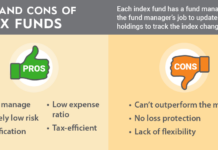If there was an award for ‘Most Unlikely Article Title of the Year’ this one would have few competitors beyond Government Decides to Cancel Taxes!
Yet early retirement, or even very early retirement, is a real possibility for those who adhere to the ways of FIRE – and you don’t need to be super-rich to do it.
Financial Independence Retiring Early is a rapidly growing online movement which re-imagines our current conceptions of a typical working life. A small community which began swapping hints and tips online in the early days of the internet has since blossomed into a huge online movement, with nearly 400k subscribers on the FIRE reddit page and a host of high-circulation blogs which are scoured by millions every month.
The simple numbers
The ultimate goal is to save a lot of money in as short a time as possible, enough to see you through retirement and make it so you never have to work again. This relies on two things: maximizing earnings and maximizing savings.
Let’s assume you’ve maximized your earning potential to the best of your ability and have landed a job that pays $49,000 a year. After taxes that number looks more like $40,000 a year.
Save half of everything
If you save half of that $40,000 every year for twenty years, you’ve given yourself a nest-egg of $400,000 for retirement. If you start this saving plan when you’re nineteen years old then by the time you’re thirty-nine you’ve got close to half a million dollars.
Assuming you’re comfortable retiring on relatively modest means, that $400,000 will last you thirty years at a spending rate of $13,333 per year – that’s 11% higher than the average poverty line in the US, according to the United States Department of Health and Human Services (HHS).
And that’s without taking into account investment strategies such as index funds and IRAs which, after inflation, can reliably generate around 4% a year in interest payments.
The 4% rule
If those numbers don’t sound substantial enough then consider this. If you had that $400,000 earning 4% a year through various investment strategies, you’d make $16,000 a year on interest alone.
According to the FIRE principles, spending 4% or less of your income is a good way to retain stability even in retirement. This is based on the notion that you saved for twenty-five years, thus a 4% spending rate would carry you through the next twenty-five years of your retirement.
Yet it gets better: if you maximized the investment potential of your 400k you could conceivably live off the interest payments for the rest of your retirement, meaning your nest egg wouldn’t need to be touched at all.
Unrealistic?
Isn’t it unrealistic to expect the average nineteen-year-old to be making $49,000 a year? Ok, how about a twenty-nine year old? The same principles apply as long as you don’t mind retiring ten years later at the still ridiculously early age of forty-nine.
The median salary in the US in 2017 was $44,564 according to the Bureau of Labor Statistics. It’s unlikely that these statistics take into account the extra income earned from side-ventures, which every FIRE disciple should be engaging in. Therefore, statistically speaking, the road to $49,000 isn’t necessarily as far away as it seems.
Extend the work cycle
For the sake of our example, we chose a twenty-year work cycle, but that’s on the low side even for FIRE practitioners. Extend your work period to twenty-five years and you could achieve the exact same results on an even lower salary.
Over twenty-five years, that $400,000 sum could be reached by saving just $16,000 a year. Assuming you’re saving half your earnings, that means you could be ready to retire in your early forties based on a yearly salary of just $32,000 after tax.
Individual circumstances
Not everyone has a $49,000-a-year job just sitting waiting for them and engaging in the principles of FIRE assumes a certain degree of privilege already.
But the aim of this article is to convey just how close at hand a life of early retirement might be and how it’s not just a game to be played by the super-rich.











